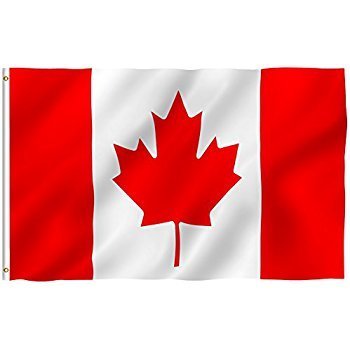1. Tuition fee is your prime expenditure
Your expenditure on tuition fee depends on the type of qualification and institution you opt for. To cover this, you will need approximately between CAD 13,000 and CAD 35,000 a year.
Most commonly, courses in humanities, education and arts are a little cheaper, while subjects such as medicine and engineering are likely to be more expensive. If you wish to study at a postgraduate level, the tuition fee is typically higher and the costs vary depending on the program. As with most other countries, MBA programs are often the most expensive. The average cost for these programs ranges between CAD 30,000-42,000.
| S.no. | Study program | Average annual fee |
| 1 | Undergraduate program | $13,000 to $20,000 |
| 2 | Postgraduate master’s degree | $17,000 to $25,000 |
| 3 | Doctoral degree | $7,000 to $15,000 |
| 4 | MBA | $30,000 to $40,000 |
2. Calculate accommodation costs
Most universities in Canada offer on-campus residence facilities to international students. You can also opt for off-campus accommodation wherein you can share apartments with other students from India. Cost for on-campus accommodation may range anywhere from CAD 8,000 to CAD 10,000 (annually) whereas living in a shared apartment can cost you around CAD 400 to CAD 700 per month depending upon your location and time of the year. Remember, the rentals vary from city to city.
An additional option is a homestay where you stay with a host family in Canada. In this, you will have to pay a placement fee of CAD 200 and a monthly fee of CAD 750 – 950 in return for meals and a room. However, you’ll be able to participate in local activities with the host and learn about the culture closely.
3. Cost of your student visa and permit
To study in Canada, the first step is to secure a valid study permit and that comes with its own costs (approx. CAD 150). Feel free to consult your IDP counsellor for latest updates and information on the visa application process and related costs.
4. Living expenses
You need to keep a little money aside for your grocery shopping, social activities and emergencies. When living in a foreign country as a student, it is better to keep track of your expenditures so that you do not overspend. Considering various expenses and living costs, a single student budget in Canada comes out to be approx. CAD 15,000 (indicative). You should also consider these common expenses when creating your budget:
- Communication expenses: As a student from India, you’d be frequently calling your friends and family back home. Therefore, always keep a section of your budget for phone bills and data expenses. Look for cost-effective calling plans and student discounts in order to stay connected with your loved ones within your monthly budget.You can find a phone plan that suits your needs, however, the average cost is approx. CAD 20 per month.
- Books and supplies: Purchasing textbooks can get a little expensive. For instance, books for engineering courses can cost you approx. CAD 250 to CAD 350. For courses like law, medicine and pharmacy, the value can go even higher. You can manage this in your budget by opting for second hand books, buying digital versions or even securing a library membership.
- Personal expenses and incidentals: Your daily expenses will include laundry, toiletries, clothing, dining out, etc. This depends entirely on the kind of lifestyle you choose for yourself.
5. Consider health support and insurance
It is mandatory for all students travelling to Canada to get medical insurance before the commencement of their program. In Canada, international student health insurance is priced between $600 and $900 per year (indicative). In British Columbia, Quebec, Alberta, Newfoundland, Manitoba, Labrador or Saskatchewan, you will be insured under the respective provincial health plans as per the length of your stay.
6. Transportation. Know how much it will cost to move around
Unless your institution provides with a shuttle service to-and-fro from your lodging, you’ll have to rely on the available public transport.
| For short distances | Make use of regional trains, buses, and subways. Metropolitan cities like Toronto, Vancouver and Montreal offer buses and subways. Smaller cities may or may not have subways, but you can always avail buses, commuter trains or local taxi service. Commuting cost can range anywhere between CAD 80 and CAD 110 for a month (indicative). It is a good idea to get monthly passes for commuting to college as they come in fairly cheap |
| Park and Ride service | If you live far from the bus stop, some cities give you the option to drive down to a special parking area where you can park your car and then take a train or bus. You can also rent a car by getting an international driver’s license. Your commute expense will vary accordingly. |
| For long distances | For travelling between different cities, you can avail long-distance buses, railways, and flights. |
7. Don’t ignore your taxes
Indian students studying in Canada having a Social Insurance Number (SIN) are allowed to work 20 hours per week during academic sessions and full-time during vacations. If you choose to work along with your studies, your Canadian earned income will be taxable. Along with this, if you have a scholarship or assistantship from your institution, the federal and state governments may tax these wards.
Remember, the exchange rate variations may also affect your budgeting. We suggest you also look for a part-time job while you are studying in Canada or seek scholarship in the universities you apply to. This can help lower your cost of studying abroad to a great extent.



